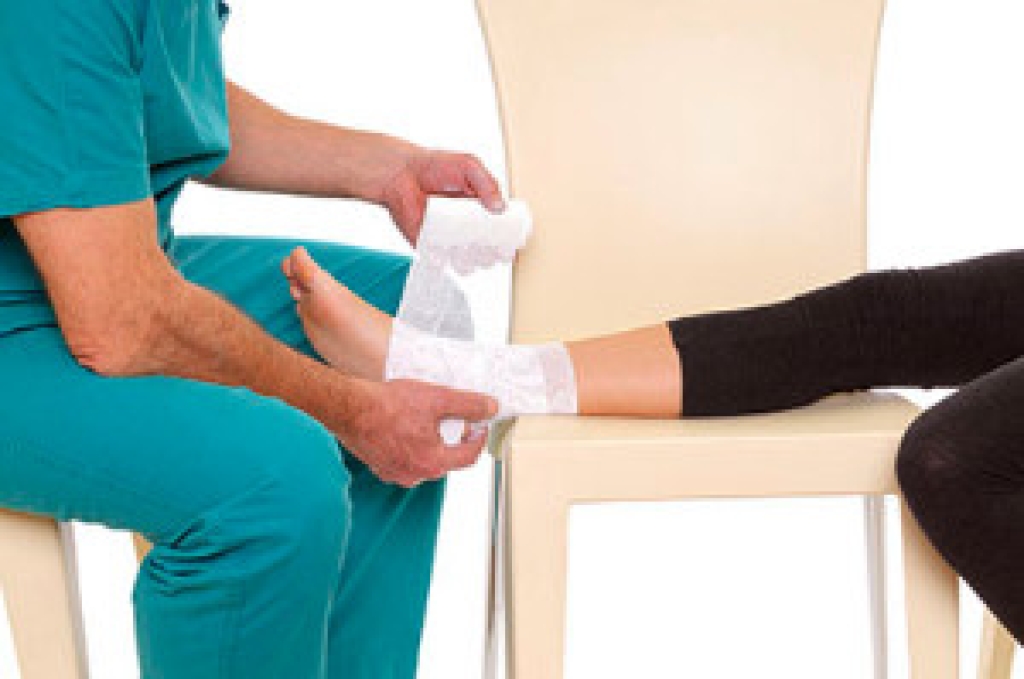 The medical term that is known as osteoarthritis may cause bone spurs at the bottom of the big toe, which may lead to the development of a bunion. If you have this type of arthritis, relief may be found when larger size shoes are worn. This may prevent additional pressure from being exerted on the bunion. A common type of arthritis that is referred to as rheumatoid arthritis typically causes inflammation on the ball of the foot. Calluses may develop as a result of the bones pushing against the skin on that part of the foot. An additional form of arthritis, which is known as gout, can affect the big toe, and may come from eating foods that are high in purine levels. Gout attacks may be prevented when healthy eating habits are implemented into the daily routine. If you have arthritis in your feet, it is strongly suggested that you consult with a podiatrist who can help you to manage this condition.
The medical term that is known as osteoarthritis may cause bone spurs at the bottom of the big toe, which may lead to the development of a bunion. If you have this type of arthritis, relief may be found when larger size shoes are worn. This may prevent additional pressure from being exerted on the bunion. A common type of arthritis that is referred to as rheumatoid arthritis typically causes inflammation on the ball of the foot. Calluses may develop as a result of the bones pushing against the skin on that part of the foot. An additional form of arthritis, which is known as gout, can affect the big toe, and may come from eating foods that are high in purine levels. Gout attacks may be prevented when healthy eating habits are implemented into the daily routine. If you have arthritis in your feet, it is strongly suggested that you consult with a podiatrist who can help you to manage this condition.
Arthritis can be a difficult condition to live with. If you are seeking treatment, contact one of our podiatrists from APEX Foot & Ankle Center. Our doctors can provide the care you need to keep you pain-free and on your feet.
Arthritic Foot Care
Arthritis is a joint disorder that involves the inflammation of different joints in your body, such as those in your feet. Arthritis is often caused by a degenerative joint disease and causes mild to severe pain in all affected areas. In addition to this, swelling and stiffness in the affected joints can also be a common symptom of arthritis.
In many cases, wearing ill-fitting shoes can worsen the effects and pain of arthritis. Wearing shoes that have a lower heel and extra room can help your feet feel more comfortable. In cases of rheumatoid arthritis, the arch in your foot may become problematic. Buying shoes with proper arch support that contour to your feet can help immensely.
Alleviating Arthritic Pain
- Exercises that stretch the foot can prevent further pain and injury and increase mobility
- Most of the pain can be alleviated with anti-inflammatory drugs, heat, and topical medications
- Massages can help temporarily alleviate pain.
It is best to see your doctor for the treatment that is right for your needs and symptoms. Conditions vary, and a podiatrist can help you determine the right method of care for your feet.
If you have any questions please feel free to contact our offices located in Fort Myers, Shellpoint, and Naples, FL . We offer the newest diagnostic tools and technology to treat your foot and ankle needs.

 Tarsal tunnel syndrome
Tarsal tunnel syndrome 
